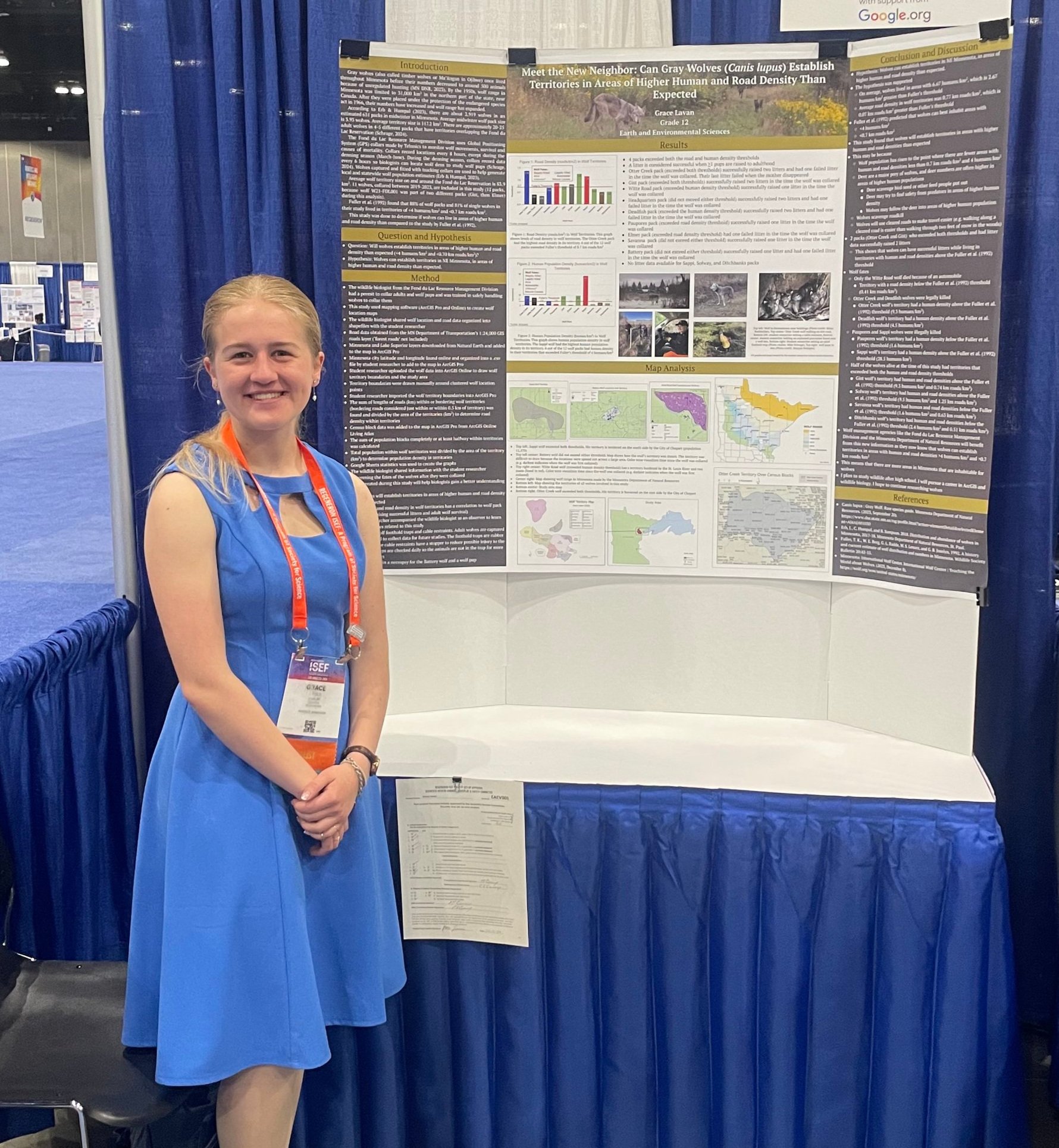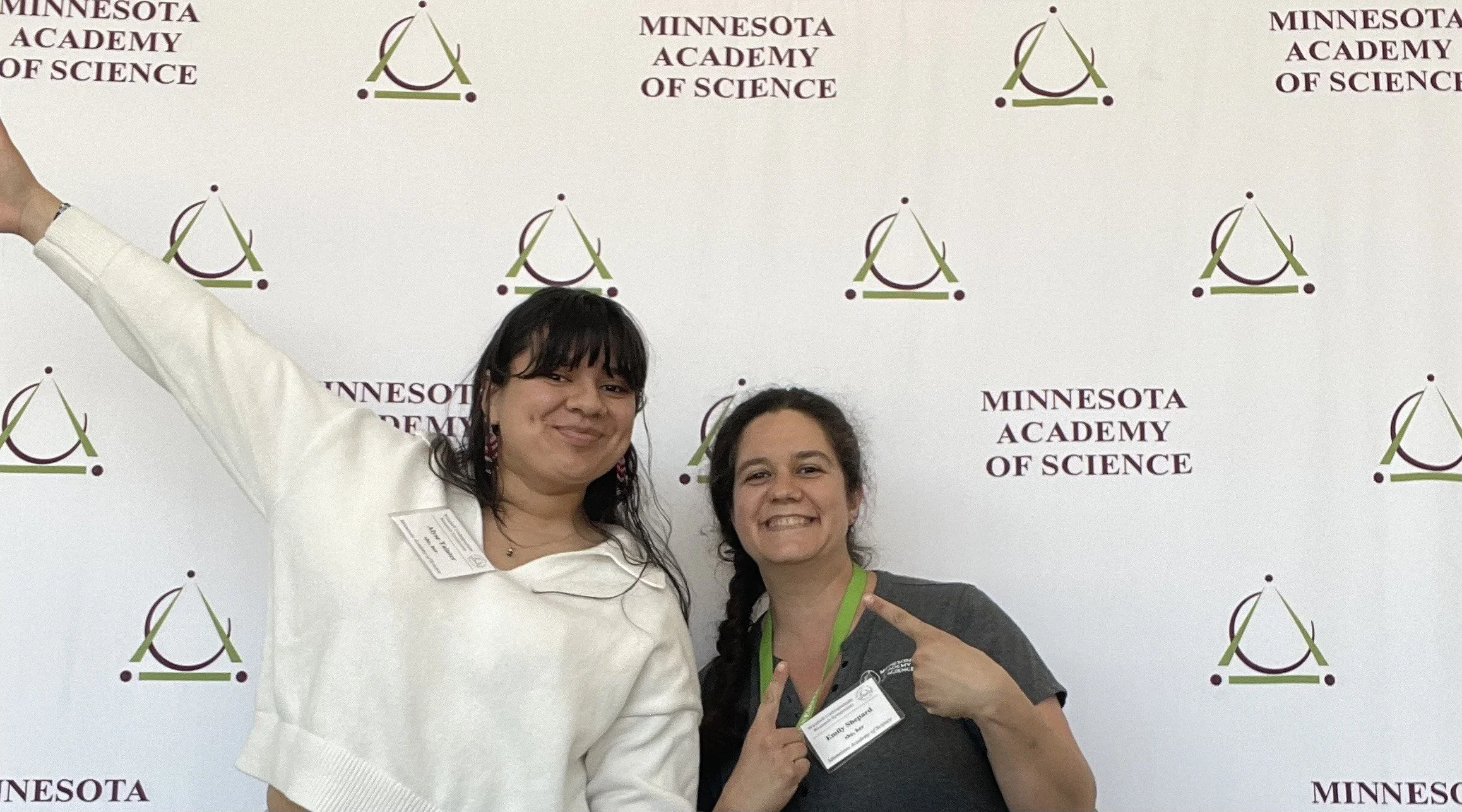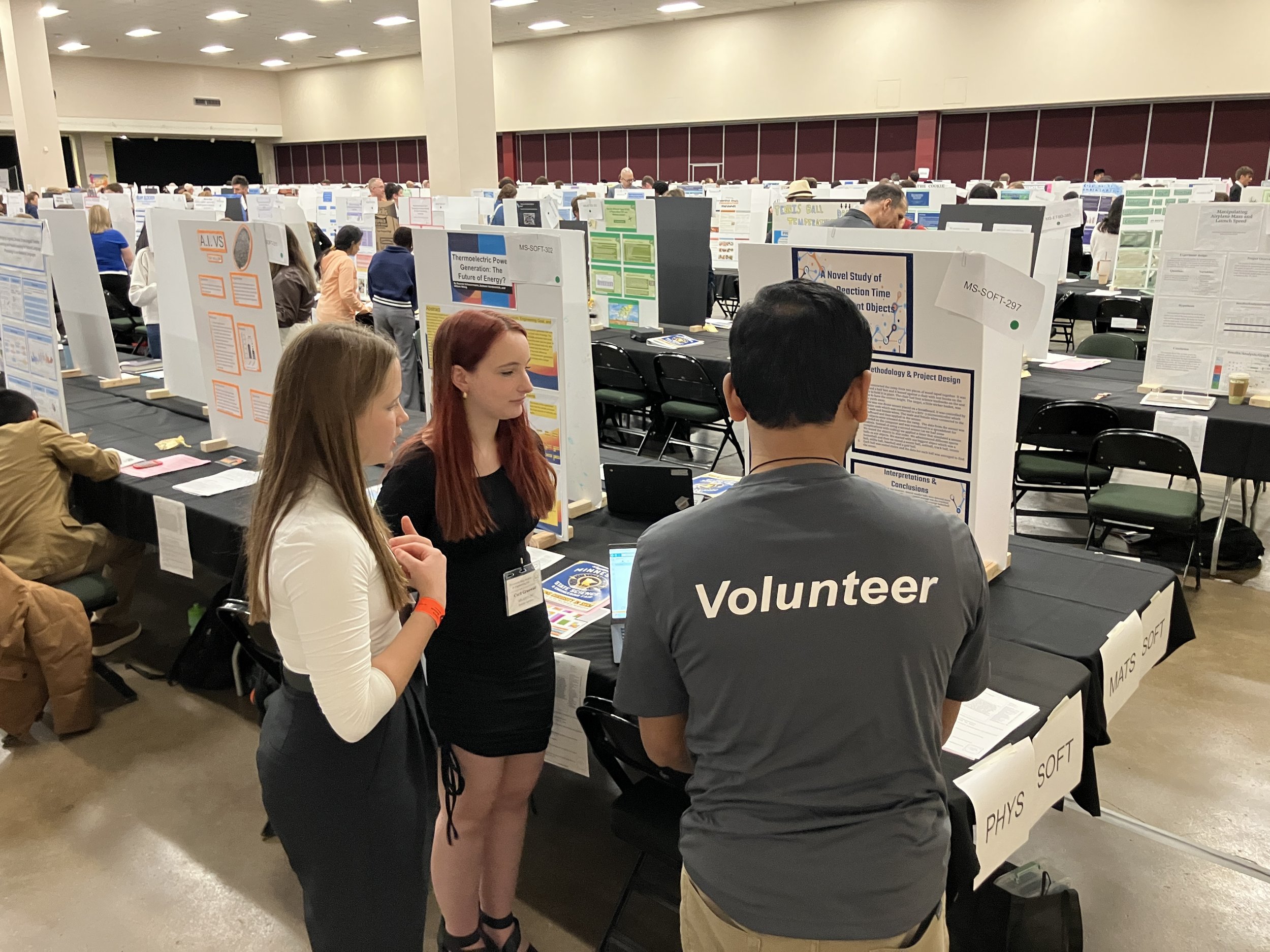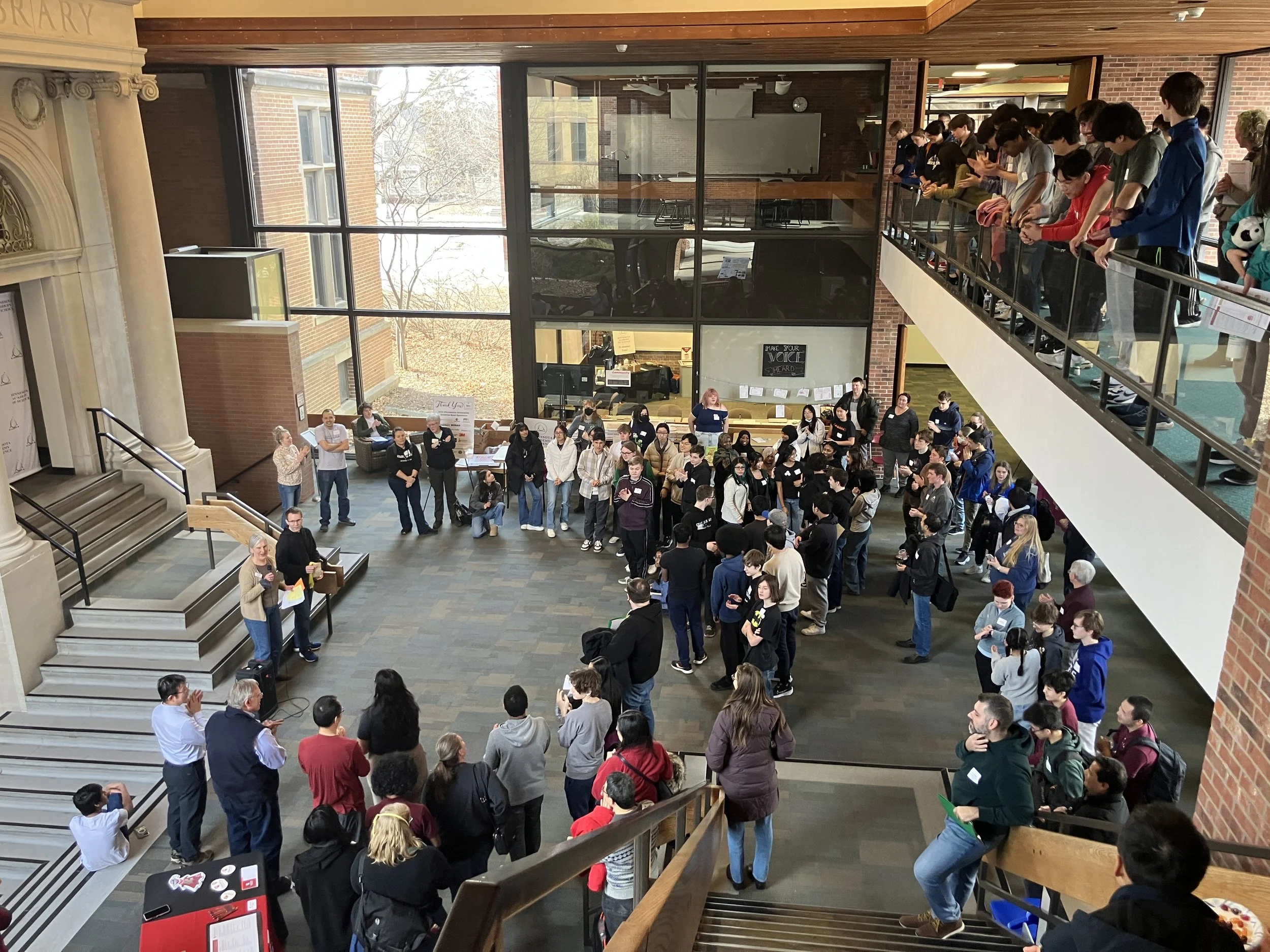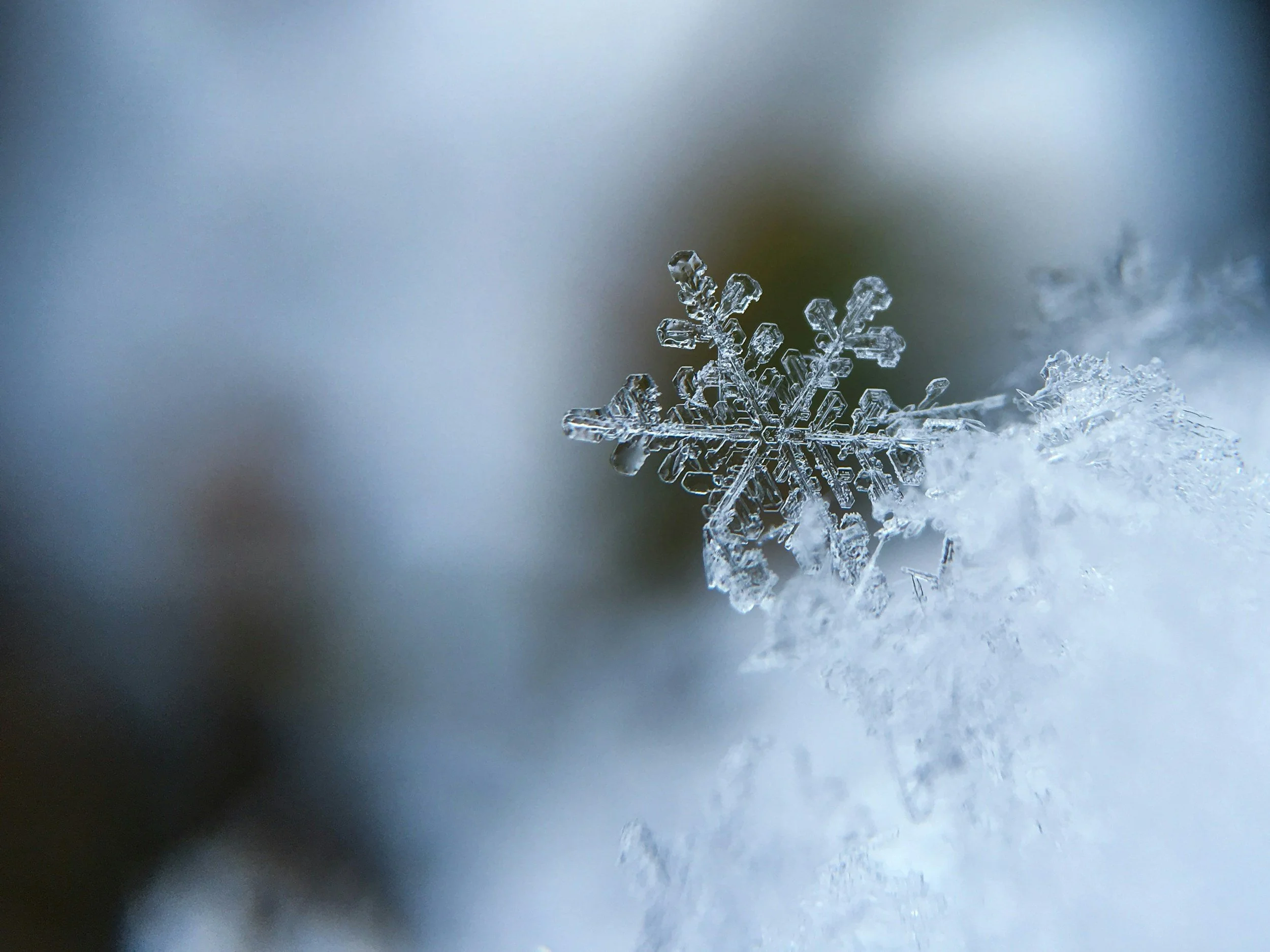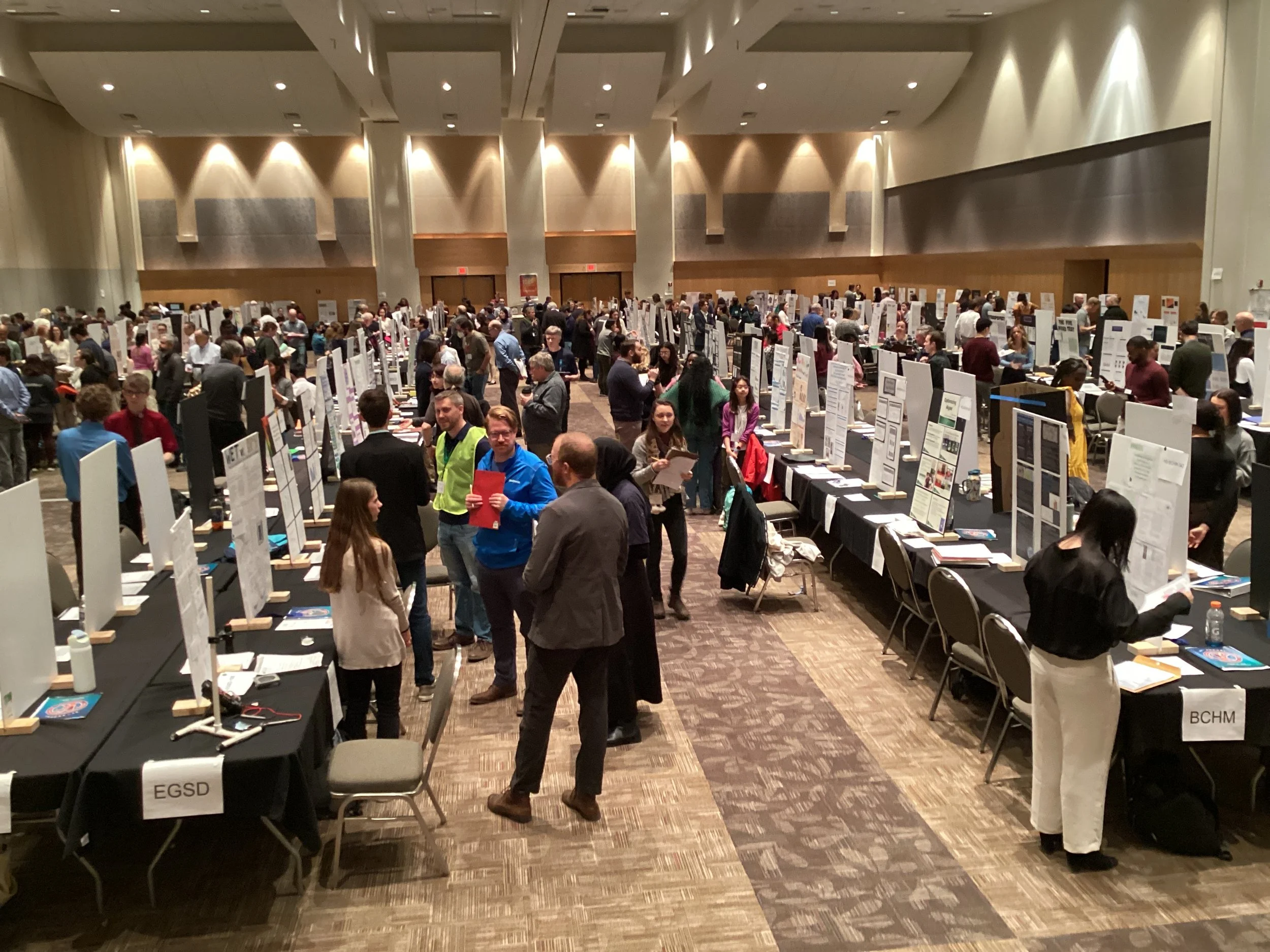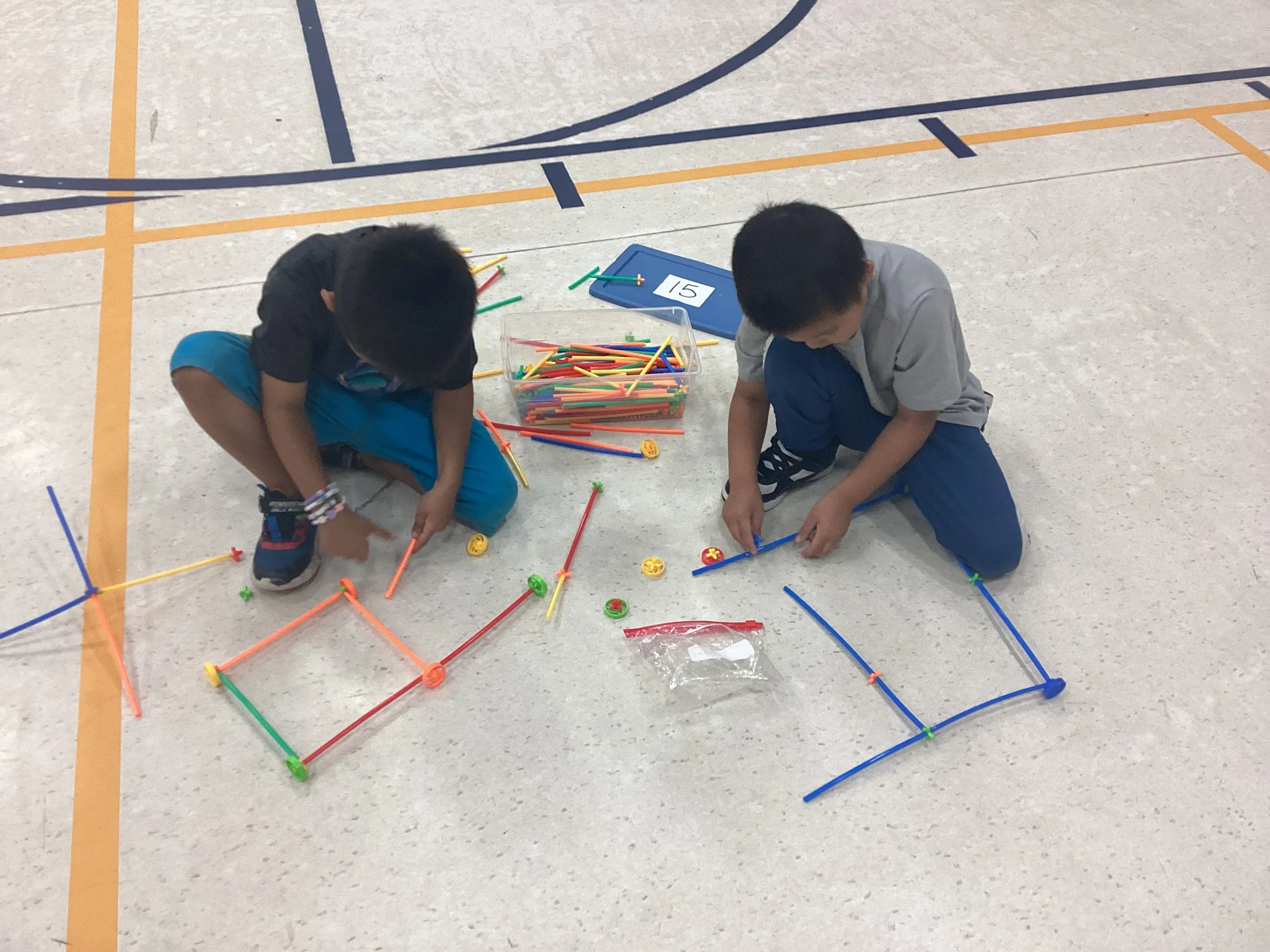Grace Lavan, who recently completed her first year as an undergraduate at the University of Minnesota-Duluth, has been researching wolves on the Fond du Lac Reservation for six years. We initially learned about Grace’s work from viewing her presentation at our State Science & Engineering Fair. This April, we were pleased to see Grace again - this time at our Winchell Undergraduate Research Symposium, where she was presenting results from her continued studies into wolves.
Grace was a frequent Science Fair participant during high school. She won awards at the Northeast Minnesota Regional Science Fair as well as at our Minnesota State Science & Engineering Fair, including two Minnesota Academy of Science (MAS) Bronze Awards and the Woman in Science Impact Award. In 2022 and 2024, Grace advanced to the prestigious International Science & Engineering Fair, which included all-expense paid trips to the competitions. At the 2024 ISEF, she was named a finalist for the National Geographic Award. In high school Grace earned honorable mentions and a silver medal at GENIUS Olympiad, an international competition centering on environmental issues
We were excited to learn more about how Grace began her research, what motivates her work, and how she has grown as a scientist over the years. Read on to learn about Grace’s scientific research journey in her own words!
Starting out in Scientific Research
My science fair career began in Dr. Cynthia Welsh’s seventh grade Life Science class at Cloquet Middle School. One requirement for the class was to research a topic of our choice and create a presentation, which she encouraged her students to enter in the Northeast Minnesota Regional Science Fair.
Going in, I anticipated a ‘baking soda volcano’ sort of Science Fair. I certainly did not expect for students or STEM professionals to take it as seriously as they did. Watching upperclass students win trips to the International Science & Engineering Fair (ISEF) really inspired me to continue competing and put more effort into my research.
My Science Fair project studied the correlation of Parkinson’s disease and stomach issues. Although this topic meant a lot to me because my grandma had Parkinson’s, my interests lay in wildlife research. In eighth grade, a graduating senior from my school offered to hand her project on gray wolves down to me. She took the time to be my mentor, kick-starting my now six-year wolf research career.
My interest in researching the impact of human and road density on wolves stemmed from experiencing mortalities among some of the individual wolves I studied. These were largely caused by automobile collisions and both illegal and legal hunting. This brought to mind the question of how dependent wolf success is on human and road density in their territories
Experience at ISEF
During my sophomore and senior years of high school (2022 and 2024), I had the honor of competing at what my Regional Science Fair Director described as the ‘Olympics of Science Fair’: the International Science and Engineering Fair (ISEF). ISEF was not only a place to present projects that students poured their time, energy, and resources into for months, but also an opportunity to connect with kids from around the world who had similar passions.
A highlight from ISEF for me was the pin exchange at the beginning of the week, where we exchanged pins or meaningful tokens from our respective countries and got to know one another. After pin exchanges, a close Science Fair friend and I would call up her boyfriend and do a live taste-test of the variety of candies and other foods we’d been given. I have so many good memories from all levels of Science Fair competitions (regional, state, and international), but nothing can compare to ISEF or GENIUS Olympiad, in my biased opinion.
Grace at the 2024 International Science & Engineering Fair in Los Angeles.
I need to be honest and say that not all moments related to Science Fair were amazing. There were nights, especially closer to the regional competition, that I stayed up until two in the morning arguing with ArcGIS Pro or SPSS. There were times that judging went poorly, and I didn’t make it as far in a competition as I hoped. A mindset I had to grow into, especially with competing at a massive fair like ISEF, was that I did research because I loved it. It wasn’t just about the trophy, prize money, or whatever fame and glory came of it, although these were excellent motivators. Working with wolves is a once-in-a-lifetime opportunity. Winning ISEF and GENIUS Olympiad trips, connecting with students and STEM professionals from around the world, and the chance to travel to different events and states with my high school friends in Science Fair made months of work completely worth it.
The Importance of Mentors
I would never have gotten as far as I did if it wasn’t for a community of STEM professionals. My mentors often took time out of their days to answer questions or hop on a zoom call with me. Mike Schrage, a wildlife biologist from the Fond du Lac Resource Management Division and my Science Fair mentor, was (and is) very good about inviting his mentees to join him in the field. Participating in field work not only helped me connect to my project and build a foundation of knowledge about Minnesota ecology and wolves, but also helped me in guiding my career path.
Along with field experience, devoting more time to math and science classes also really helped grow my research both during Science Fair and now in college. Some courses that were especially impactful on my science fair career were the Geographic Information System (GIS) classes I took through PSEO (Postsecondary Enrollment Options) with Dr. Carl Sack at Fond du Lac Tribal and Community College. I don’t know that I would have pursued a career in GIS if Dr. Sack hadn’t been such a supportive and motivating instructor.
Having a mentor does not determine your success in science fair, but good mentors make all the difference. Without Mike Schrage, Dr. Carl Sack, Dr. Cynthia Welsh, and many others who contributed to my high school and college careers, I would not be where I am today.
Continuing Scientific Research in College
I currently work as an undergraduate student researcher in Dr. Michael Joyce’s lab at the Natural Resource Research Institute. There, I have the opportunity to apply the GIS I have learned to ongoing projects, as well as learn new laboratory and field techniques. It is a wonderful place to work and grow as a college researcher.
I hope to continue contributing to Fond du Lac Resource Management Division’s wolf project in some capacity. Career-wise, it is not clear how long wolves will stay in the picture, but they are an incredible animal, and a species that will hold my interest for a good while.
My plan going forward is to double major in GIS and Earth and Environmental Sciences at the University of Minnesota Duluth before pursuing veterinary medicine or potentially wildlife biology. My career choices were heavily influenced by my experiences in Science Fair - I competed in the Science Fair category ‘Earth and Environmental Sciences’ with my GIS project.
Participating in the Winchell Undergraduate Research Symposium
I prepared to present my research at Winchell similarly to how I did for Science Fair in the sense that I needed to read literature to grow my understanding of the topic, determine my methodology, and analyze data. One aspect that differed slightly was my presentation preparation. In both middle and high school Science Fairs, students give far more poster presentations than oral presentations. Giving an oral presentation rather than a poster presentation at the Winchell symposium was a good challenge, and an experience I would highly recommend.
I went into Winchell knowing that the other undergraduate researchers came to present valuable, high-level research. That being said, I was pleasantly surprised at how much work went into the various projects and the standards these college students are setting for themselves and their colleagues. Seeing their work motivates me to strive for greatness in my own field of study.



